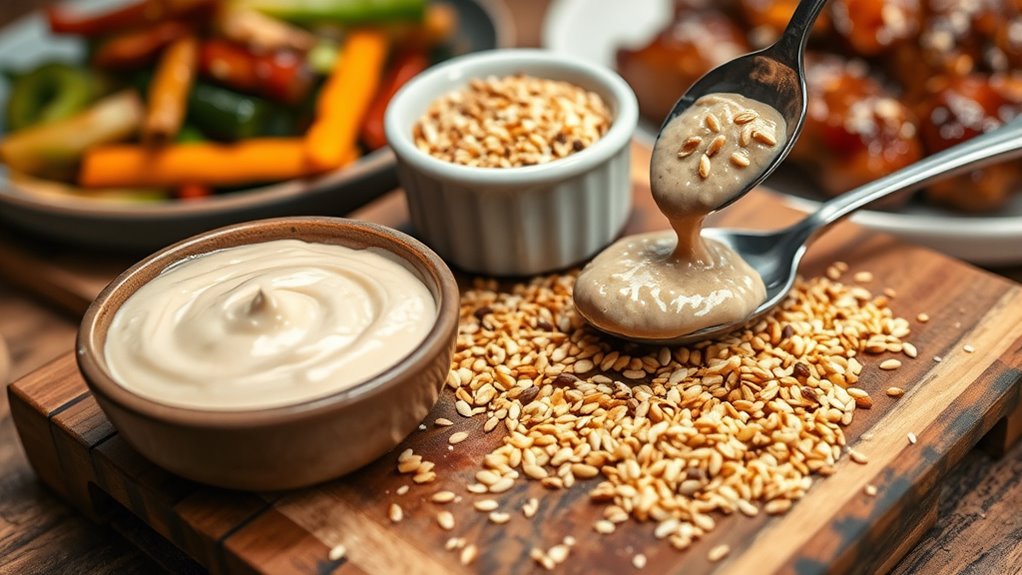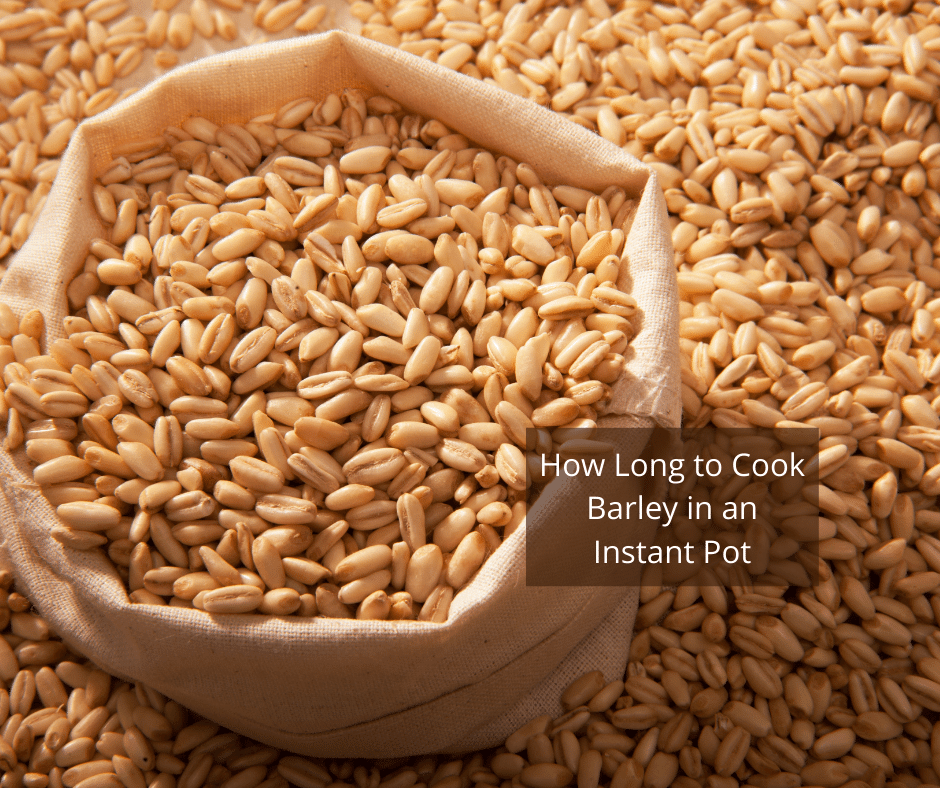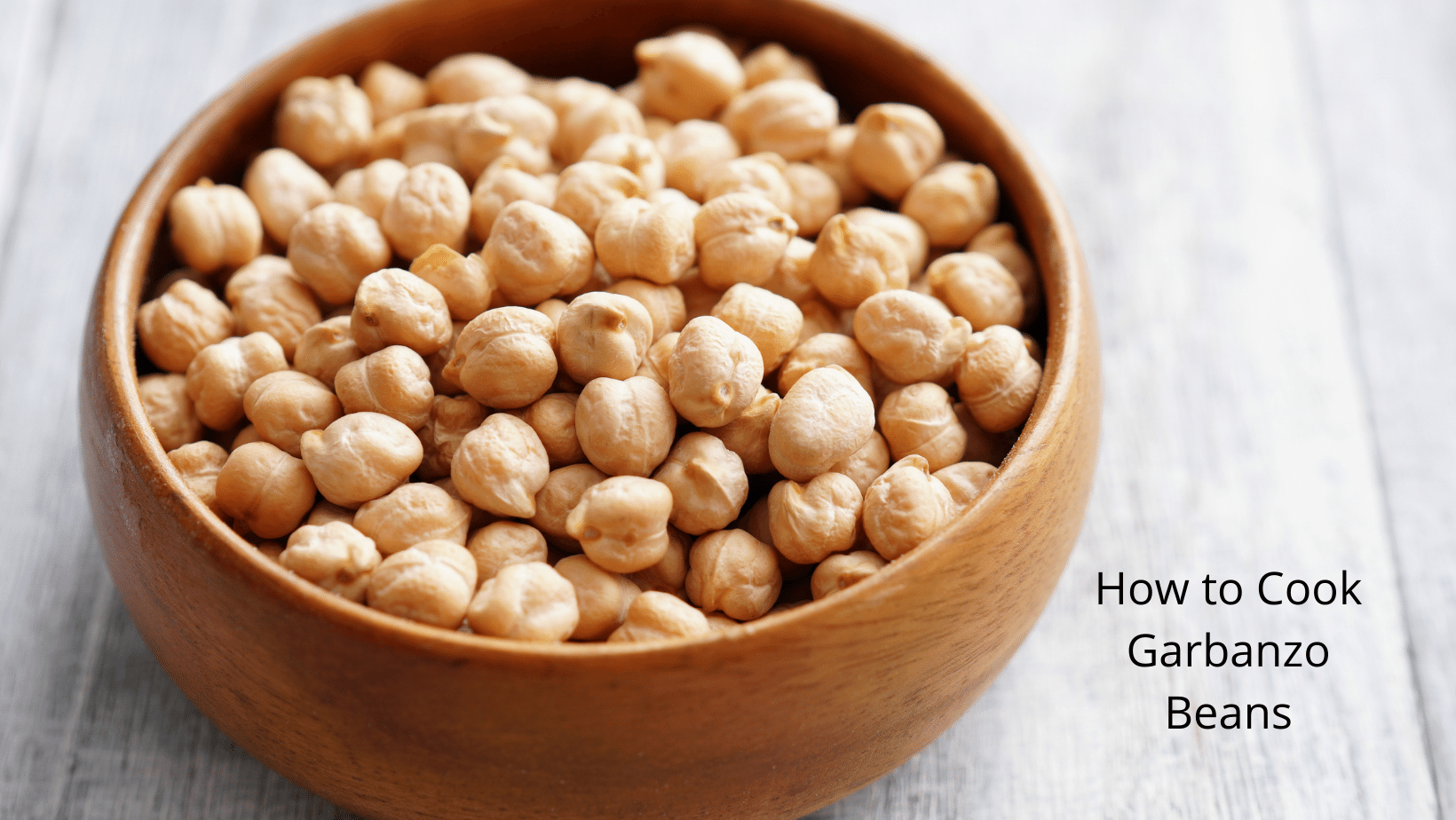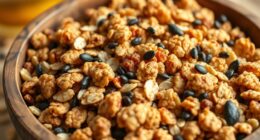Cooking with sesame seeds goes far beyond just sprinkling them on dishes. You can toast them to boost their nutty flavor or grind them into tahini for rich sauces and dressings. Incorporate sesame into salads, baked goods, or sushi for added crunch and nutrition. Proper storage helps maintain freshness and health benefits, so keep them in a cool, dark place or refrigerate for longer shelf life. Keep exploring to discover even more tasty and nutritious ideas.
Key Takeaways
- Incorporate toasted sesame seeds into salads, baked goods, or sauces for enhanced flavor and texture.
- Grind sesame seeds into tahini or pastes to create rich hummus and dressings.
- Use sesame seeds as a crunchy topping for sushi, roasted vegetables, or grain bowls.
- Toast and grind sesame seeds to boost their nutty flavor and nutritional absorption in various recipes.
- Store sesame seeds properly to maintain freshness, flavor, and nutritional benefits during cooking.

Sesame seeds are a versatile ingredient that can elevate both simple and complex dishes with their rich, nutty flavor. When you incorporate sesame seeds into your cooking, you’re not just adding texture and taste—you’re also introducing a wealth of nutritional benefits. These tiny seeds are packed with healthy fats, protein, fiber, vitamins, and minerals like calcium, magnesium, and iron. Consuming sesame seeds regularly can support heart health, improve bone strength, and boost your immune system. Because of their nutritional profile, they’re an excellent addition to your diet, whether sprinkled on salads, mixed into baked goods, or blended into sauces.
Sesame seeds boost flavor and nutrition in every dish.
When it comes to storage tips, keeping sesame seeds fresh guarantees you get the maximum flavor and nutritional benefits over time. Store them in an airtight container in a cool, dark place, such as a pantry or cupboard, away from direct sunlight and heat sources. If you buy them in bulk or notice you’re not using them frequently, consider refrigerating or freezing your sesame seeds. This prevents the oils from becoming rancid, which can happen if they’re exposed to warmth or light for too long. Before using refrigerated or frozen seeds, let them come to room temperature to bring out their full aroma and flavor. Proper storage not only maintains their freshness but also extends their shelf life, saving you from wasting money on spoiled seeds.
In addition to their health benefits and storage tips, sesame seeds are incredibly adaptable in the kitchen. Toasting them enhances their nutty flavor and adds depth to dishes like stir-fries, rice bowls, or even oatmeal. You can also grind sesame seeds into a paste—tahini—which is a key ingredient in hummus and various dressings. Using sesame seeds as a topping adds a delightful crunch and visual appeal to everything from sushi rolls to roasted vegetables. Additionally, incorporating sesame seeds into your cooking isn’t complicated; they’re easy to measure, sprinkle, or blend into recipes. Incorporating antioxidants from sesame seeds can also help combat oxidative stress in the body.
Ultimately, sesame seeds are more than just a garnish—they’re a nutritious, flavorful, and versatile ingredient that can transform your everyday meals. By understanding their nutritional benefits and storing them properly, you guarantee they remain fresh and nutrient-rich. So, next time you’re preparing a dish, consider adding sesame seeds not just for flavor but for the health boost they provide. Their subtle, nutty taste can elevate your cooking while supporting your overall well-being.
Frequently Asked Questions
Can Sesame Seeds Be Used as a Meat Substitute?
You might wonder if sesame seeds can serve as a meat substitute. While they aren’t a complete vegetarian protein on their own, you can incorporate them into meat alternatives like veggie burgers or plant-based patties for added flavor and texture. Sesame seeds bring a nutty taste and nutritional benefits, making them a great ingredient in your quest for delicious vegetarian protein options and creative meat alternatives.
Are There Any Health Risks Associated With Sesame Seed Consumption?
Think of sesame seeds as double-edged swords—while they offer health benefits, they can also pose risks. You should watch for allergic reactions, which can be severe, especially if you have nut allergies. Also, pesticide residues might cling to their shells, so opt for organic when possible. Eating in moderation and being aware of your body’s responses can help you enjoy sesame seeds safely without falling into a trap.
How Should I Store Sesame Seeds to Keep Them Fresh?
To keep your sesame seeds fresh, you should follow proper storage techniques that focus on freshness preservation. Store them in an airtight container in a cool, dark place, like your pantry or fridge. Keep them away from direct sunlight and humidity, which can cause rancidity. If you buy in bulk, consider refrigerating or freezing a portion to extend their shelf life. This way, your sesame seeds stay flavorful and fresh longer.
Can Sesame Seeds Be Incorporated Into Baking Recipes?
You might wonder if sesame seeds can be part of your baking adventures. The answer is yes! Baking with sesame seeds enhances flavor profiles with their nutty, toasted notes. They add texture and depth to bread, cookies, or muffins. Incorporating sesame seeds isn’t just about garnishing; it’s about elevating your baked goods. Experiment with white or black seeds to explore different flavor profiles and create delicious, wholesome treats.
Are There Different Types of Sesame Seeds for Specific Dishes?
You might wonder if different sesame seed varieties suit specific dish pairings. Yes, there are several types, like hulled and unhulled sesame seeds, each offering unique flavors and textures. For instance, toasted sesame seeds enhance Asian dishes, while white hulled seeds work well in baked goods. Choosing the right sesame seed variety can elevate your recipes, making them more authentic and flavorful. Always consider the dish’s profile when selecting your sesame seeds.
Conclusion
So, next time you sprinkle sesame seeds, realize you’re unleashing a flavor explosion that could rival a fireworks show in your mouth! These tiny seeds have the power to turn any dish into a culinary masterpiece, making every bite a journey to sesame seed paradise. Don’t hold back—embrace their magic and watch your cooking transform into an unforgettable feast that’ll have everyone asking for seconds (and thirds!). Trust me, sesame seeds are your new secret weapon!
















